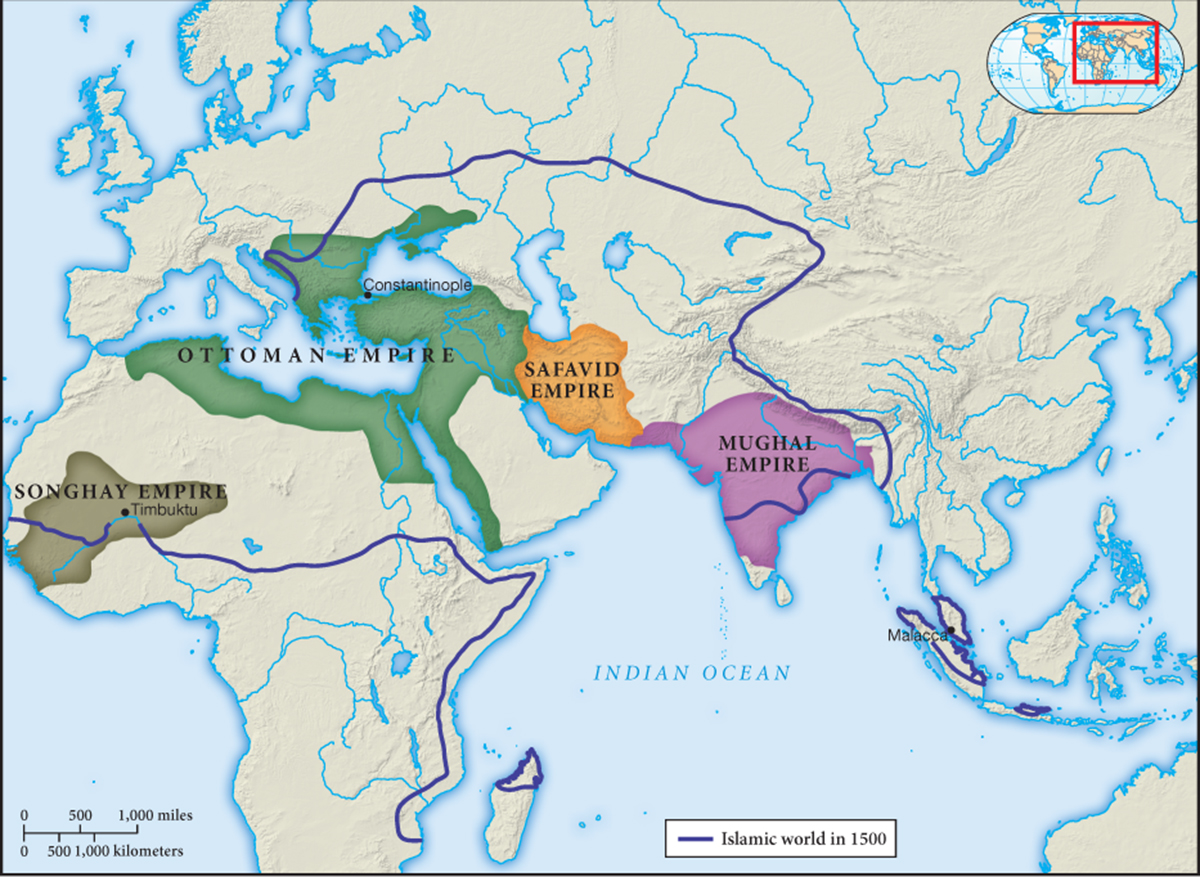Beyond the domains of Chinese and European civilization, our fifteenth-century global traveler would surely have been impressed with the transformations of the Islamic world. Stretching across much of Afro-Eurasia, the enormous realm of Islam experienced a set of remarkable changes during the fifteenth and early sixteenth centuries, as well as the continuation of earlier patterns. The most notable change lay in the political realm, for an Islamic civilization that had been severely fragmented since at least 900 now crystallized into four major states or empires (see Map 12.4). At the same time, a long-term process of conversion to Islam continued the cultural transformation of Afro-Eurasian societies both within and beyond these new states.

Map 12.4 Empires of the Islamic World The most prominent political features of the vast Islamic world in the fifteenth and sixteenth centuries were four large states: the Songhay, Ottoman, Safavid, and Mughal empires.

